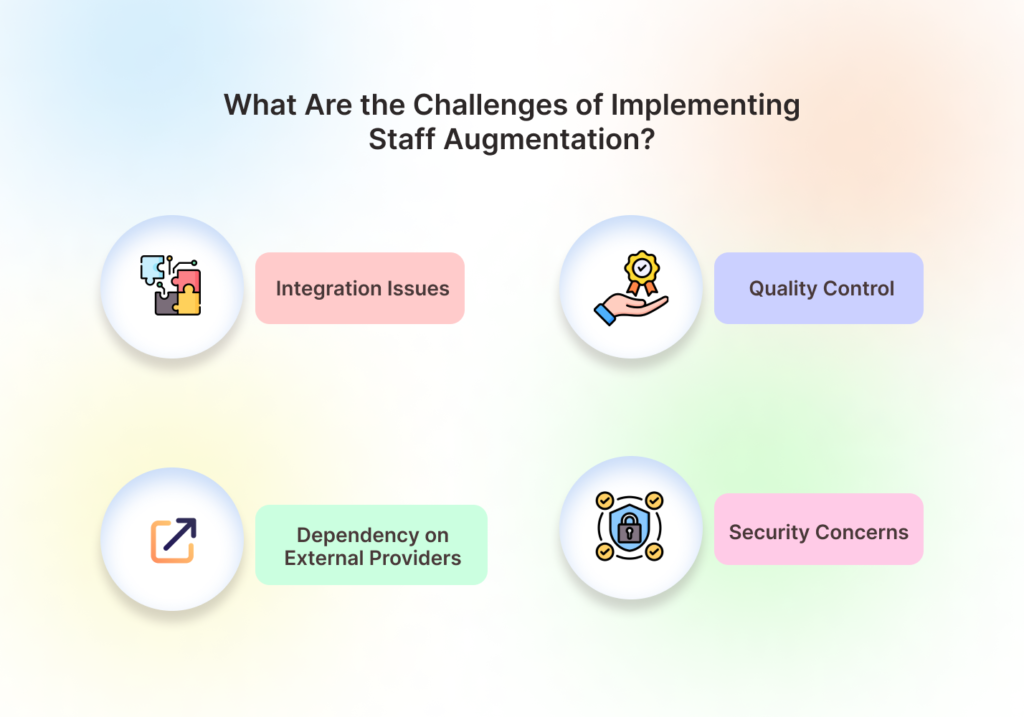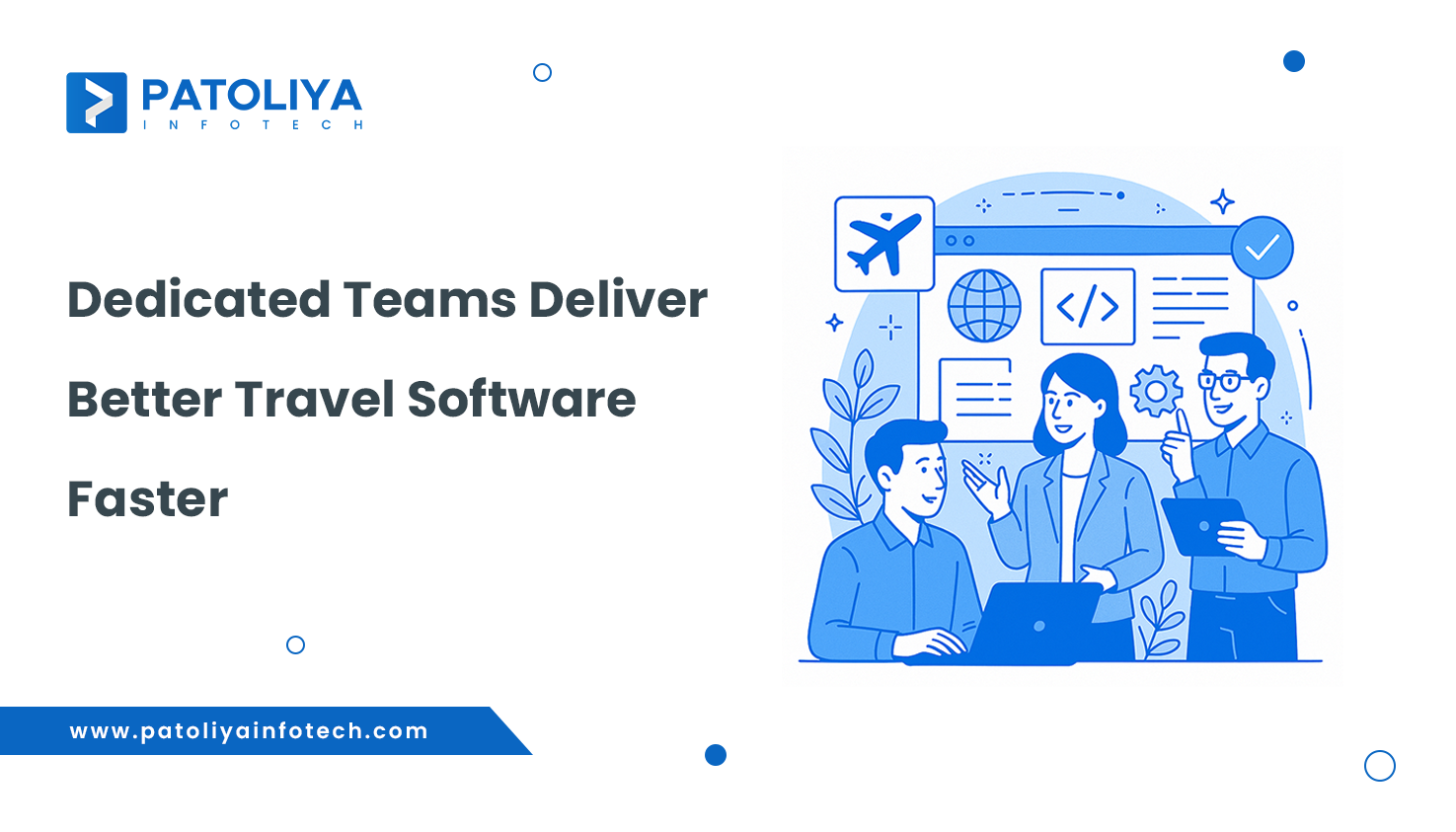When Should a Company Consider Staff Augmentation?

Table of Contents
What is staff augmentation?
Businesses may acquire tech talent worldwide and take direct control of their expanded workforce by utilizing staff augmentation, a flexible outsourcing approach. In order to meet project demands without committing to full-time employment over the long term, the objective is to rapidly deploy experienced people to fill in the gaps in the workforce. This might be revolutionary for small businesses.
Benefits of Staff Augmentation for Small Businesses
The benefits of staff augmentation are numerous, making it a valuable tool for small businesses:
- Access to Specialized Skills: Startups may lack the funding necessary to hire full-time workers with the specialized skills required. By bringing in experts for specialized tasks like web development, marketing campaigns, or financial research, staff augmentation enables them to close this gap.
- Cost-Effectiveness: There are large overhead expenses associated with hiring and training full-time staff. An affordable option is staff augmentation. For a predetermined amount of time, businesses only pay for the skills they require.
- Scalability and Flexibility: Needs in business can change. Businesses may rapidly scale their personnel up or down in accordance with project requirements thanks to staff augmentation. They can manage heavy workloads without hiring permanent staff because of this flexibility.
- Faster Project Completion: Bringing in experienced staff specifically for a project can accelerate completion times. This allows businesses to capitalize on market opportunities and stay ahead of the competition.
- Reduced Hiring Burden: Both time and resources may be needed during the hiring process. Businesses can concentrate on their core competencies as staff augmentation providers take care of the hiring and screening process.
- Improved Expertise and Knowledge Transfer: By imparting their knowledge to current staff members, augmented staff members can promote knowledge transfer and upskilling within the organization.
- Reduced Risks Associated with Hiring: Businesses can evaluate a candidate's abilities through staff augmentation prior to hiring them for a full-time role.
Help yourself with The Guide of 10 Different types of Web Applications Let's Dive in.
When Should a Company Consider Staff Augmentation?
In a few situations, a business should think about staff augmentation:

- Short-term Projects
- When more resources are required to finish a project that will take place in the near future without requiring long-term commitments.
- Specialized Skill Requirements
- When a project calls for specialized knowledge that the present team does not have.
- Seasonal Workloads
- To manage busy times without having to hire more people long-term.
- Rapid Scaling
- When the workload suddenly increases and the team needs to be scaled up right away.
- Cost Management
- When efficient cost management is required in order to avoid the overhead related to hiring full-time employees.
Let's dive in Step-by-Step Guide to Web Application Development Process and Develop our knowledge.
Role of Staff Augmentation in Business:
Staff augmentation plays a critical role in modern business operations:
- Strategic Flexibility
- Gives the flexibility to swiftly adjust to shifting project needs and market situations.
- Gives companies the ability to react quickly to opportunities and obstacles.
- Resource Optimization
- Brings in the right talent at the right moment to aid in resource allocation optimisation.
- Lets companies concentrate their core team on strategic duties while using augmented workers to fulfill particular project requirements.
- Enhancing Competitiveness
- Through increased creativity and efficiency, firms can become more competitive by utilizing outside expertise.
- Eliminates the need for internal development by giving access to the newest technology and talents.
Considerations for Deciding on Staff Augmentation
When determining if staff augmentation is the best course of action, take into account the following factors::
- Project Complexity
- Evaluating the project's requirements and complexity will help you decide whether outside expertise is required.
- Skill Gaps
- Determine which specific skill gaps in your team need to be filled in order to complete the project.
- Cost-Benefit Analysis
- To make sure that staff augmentation is a financially feasible alternative, perform a cost-benefit analysis.
- Time Constraints
- Determine whether staff augmentation can fulfill deadlines and how urgent the project is.
- Long-term vs Short-term Needs
- Assess if the need is temporary or if it has the potential to become permanent.
- Team Dynamics
- Think about how hiring temporary employees may affect team dynamics and how well they can fit in with the current group.
- Provider Reputation
- For quality and dependability, do research and select a reliable staff augmentation company.
Deep Dive into How Does React Native Streamline the Maintenance of Mobile Apps?
Challenges of Staff Augmentation for Small Businesses
With the many advantages of staff augmentation, small companies also face the following difficulties:

- Integration Issues
- Cultural Fit: It can be difficult to make sure that temporary employees are in line with the company's values.
- Communication Barriers: There may be problems with communication, particularly if the expanded staff is located offshore or in a remote location.
- Quality Control
- Verification of Skill: Confirming that the temporary employees have the necessary training and expertise.
- Continuity: With a revolving pool of augmented labor, it might be challenging to maintain consistent work quality.
- Dependency on External Providers
- Reliability: Relying on outside vendors to supply essential project components could be dangerous if the vendor is untrustworthy.
- Control: Less authority over the additional workers than with full-time staff members.
- Security Concerns
- Data Security: Making sure temporary employees are not able to access confidential company information.
- Intellectual Property: The potential hazards of disclosing confidential information to temporary employees.
Conclusion
Staff augmentation offers small companies the freedom to scale operations quickly, access specialized expertise on demand, and successfully manage expenses. It can be a game-changing strategy. Businesses may swiftly fill talent gaps, fulfill project deadlines, and react nimbly to market developments by bringing in outside specialists into their teams.
This method reduces risks related to resource allocation and project management while simultaneously increasing productivity and innovation. Small organizations can maximize their workforce by assigning specific, time-bound tasks to augmented workers, freeing up the core team to concentrate on strategic goals.



